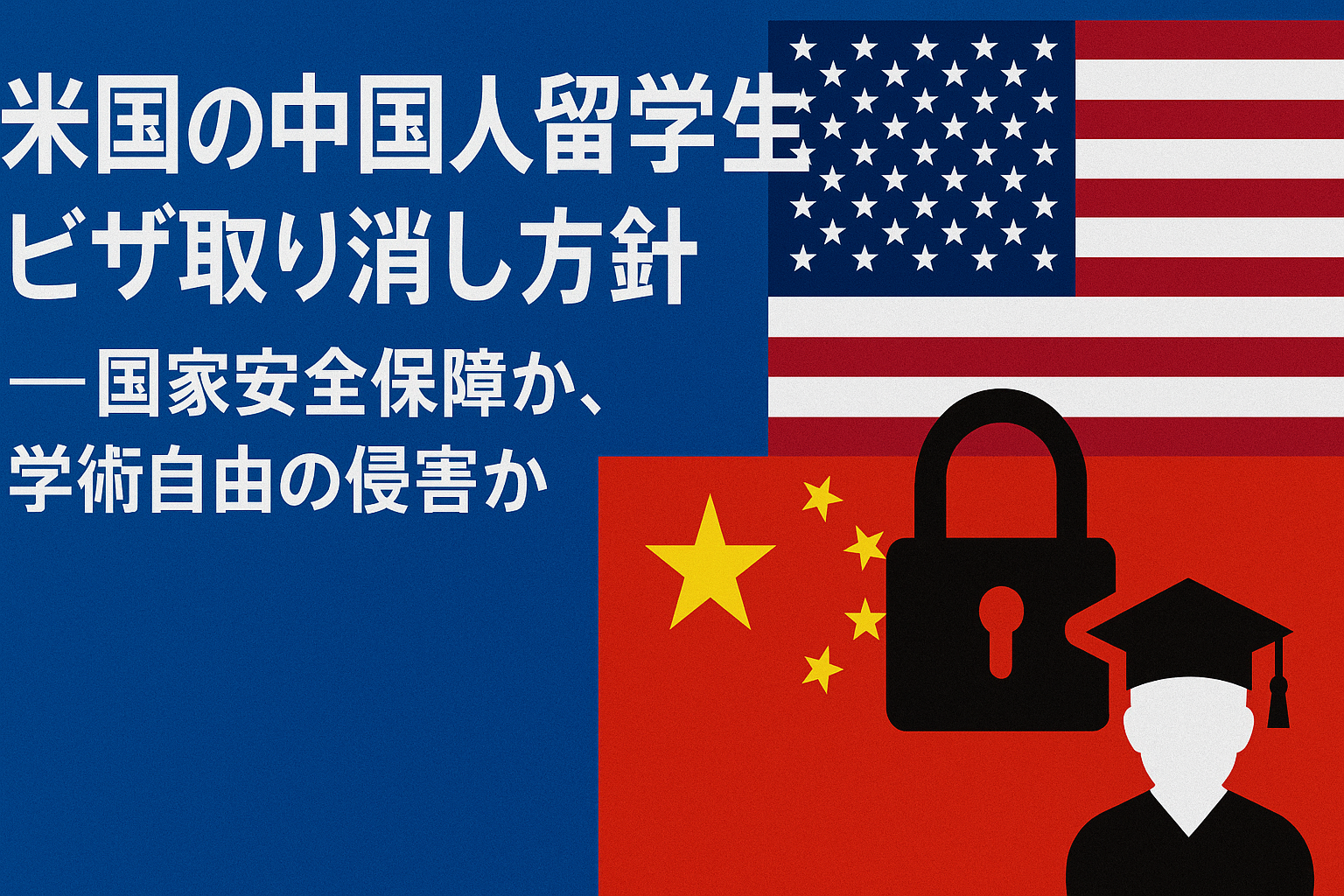On May 29, 2025, U.S. State Department spokesperson Tammy Bruce announced a new policy in a press briefing: the revocation of visas for Chinese students with ties to the Chinese Communist Party. This move has added fresh tension to U.S.-China relations. While justified under the banner of national security, the policy reflects a broader conflict between security concerns and the values of academic freedom and diversity.
The Logic of National Security
Spokesperson Bruce emphasized that China has been unlawfully acquiring research results and intellectual property through U.S. universities to enhance its military capabilities. She stated the policy is a preventive measure. Indeed, the risk of advanced technology being diverted for military purposes is a serious and undeniable issue. It is understandable for a nation to prioritize its own security.
However, the real issue lies in the vagueness of the criteria. What constitutes “ties to the Chinese Communist Party” has not been clearly defined, and the term “critical fields” remains open to broad interpretation. As a result, students of a certain background may face sweeping exclusion.
Academic Freedom and America’s Soft Power
U.S. institutions of higher learning have long attracted outstanding students from around the world by serving as open spaces for the exchange of knowledge. The ability to engage in discussions and learn across nationalities, ideologies, and cultural backgrounds has been a core strength of American universities.
While Bruce expressed confidence that “students are drawn by the excellence of U.S. universities,” if the system implements discriminatory screening criteria, that trust may begin to erode. In a society that labels “who the enemy is,” genuine freedom of learning becomes increasingly difficult to sustain.
Democracy and the Paradox of “Political Neutrality”
Furthermore, the spokesperson commented on student protests regarding the Gaza Strip, stating that “universities are not venues for political indoctrination or activist training.” Though this may sound reasonable at first glance, it risks denying the university’s role as a space for social dialogue and critical thinking.
During the Cold War era, universities often served as the starting points for government criticism and peace movements. This was a healthy function of democracy. Attempting to make universities “politically sterile” ultimately poses the danger of excluding diverse values.
Between Security and Freedom
What this visa policy reveals is the U.S.’s deep struggle to balance “security” and “openness.” National security is undoubtedly important, but if it teeters on the edge of excessive exclusion or surveillance, it threatens the very ideals that America has long championed: freedom, equality, and tolerance.
This policy is not merely about visas. It is, in essence, a litmus test for the future of global education and research.

